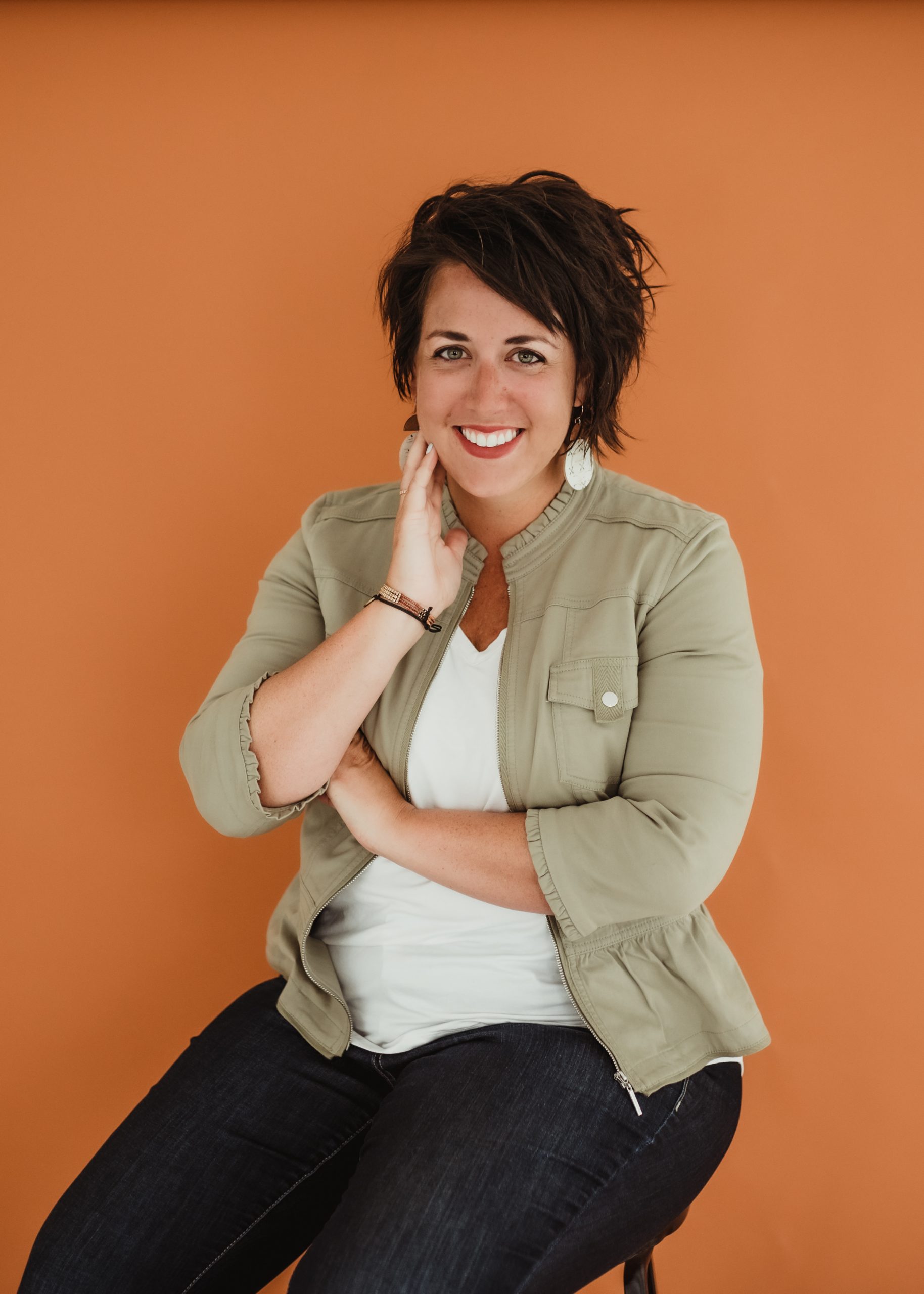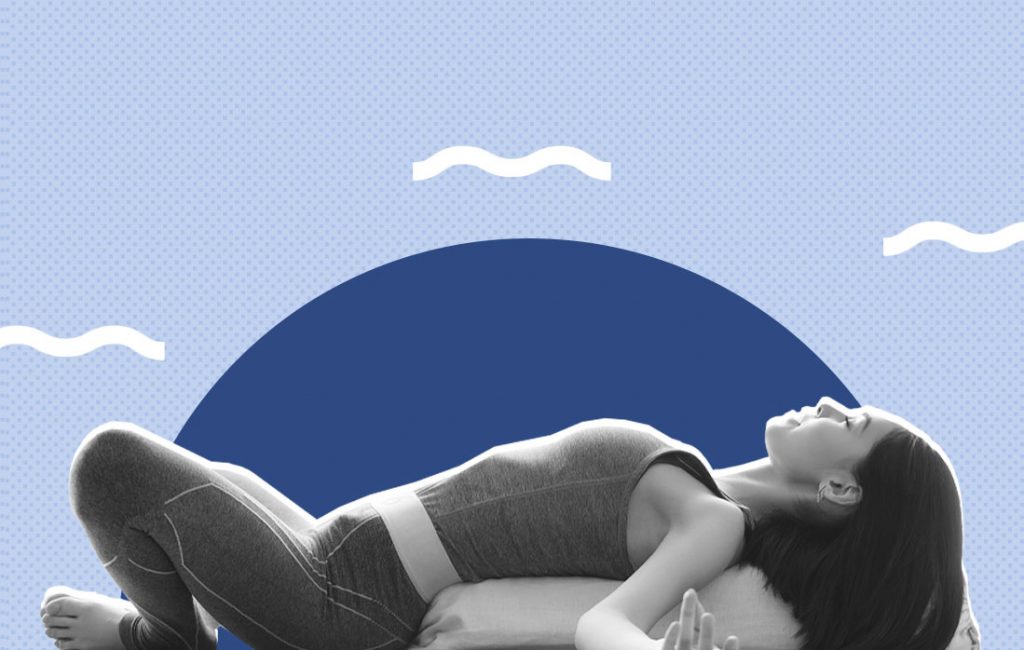
As we age, a variety of factors impede our ability to fall asleep, from circulating worries, to aches and pains, to more serious medical conditions. In addition, women report an increase in sleep issues during menopause, making it harder than ever to “sleep like a baby” the further and further we get away from our own childhoods. But, a new study reveals a potential strategy to ease severe insomnia in older women — yoga.
The new study, published on March 29, examines 12 weeks of India-based participants between 60 and 70 years of age, who had severe insomnia. (1) Six days per week, for 60-minute sessions, they engaged in yoga therapy interventions for the duration of the study. By the end, researchers found a significant decrease in both their insomnia severity scores, and also an additional positive effect — a decrease in systolic blood pressure. The results of the study found that the average Insomnia Severity Score decreased by 5.17. It also showed that the systolic blood pressure scores decreased by a mean of 9.67.
The scientists concluded that yoga is, therefore, a non-pharmacological solution that “holds promise” for insomnia and blood pressure symptoms in older women.
This study supports previous study findings. A 2023 study found that yoga can act as a holistic treatment option for those suffering from insomnia. (2) In this study, the quality of sleep saw improvements for participants, along with overall physical health. In 2022, a Norwegian survey also found that 17 percent of adults over the age of 65 suffer from insomnia on a daily basis in the U.S. (3)
The study comes at a time where sleep is an increasingly important aspect as we consider our overall health, and including and especially for those in the aging population. It’s a group that needs intervention and more research, to better help with quantity and quality of sleep. A 2022 study reported that 30 percent of older adults (age 65-79 years) got less than seven hours of sleep each night. (4) The study also found that insomnia was more prominent among women in that age group (16 percent) compared to men (11 percent).
So what is it about yoga that might impact sleep disorders? Some experts have called it “meditative movement,” and this isn’t the first study connecting it to a wide variety of improvements in mental and emotional health conditions. It can help relax your body before bed, reducing night waking as well. One of the main reasons is that it helps you move from a sympathetic mode (fight, flight or freeze) to a parasympathetic state (reset and digest) which is needed for quality sleep.
Additional research has shown yoga to be effective in one particular group as well — low income study participants who were having sleep issues. Participants in that study went from 5.3 hours of sleep nightly to an impressive 7.2. In addition, a majority of participants reported that they “strongly agree” the yoga class left them more relaxed and helped them destress.
But, as with all remedies, yoga might not work for everyone with insomnia, and dealing with insomnia can have a serious effect on your physical and emotional health. Those with the disorder have issues falling or staying asleep, and don’t feel rested after sleeping. This can cause irritability, memory lapses, trouble concentrating, and even depression. So, it’s important to examine the complex condition and potential solutions with your medical team, and not just through yoga alone — while downward dog and tree pose can solve a lot, it shouldn’t replace your sleep doctor’s thorough intervention plan.
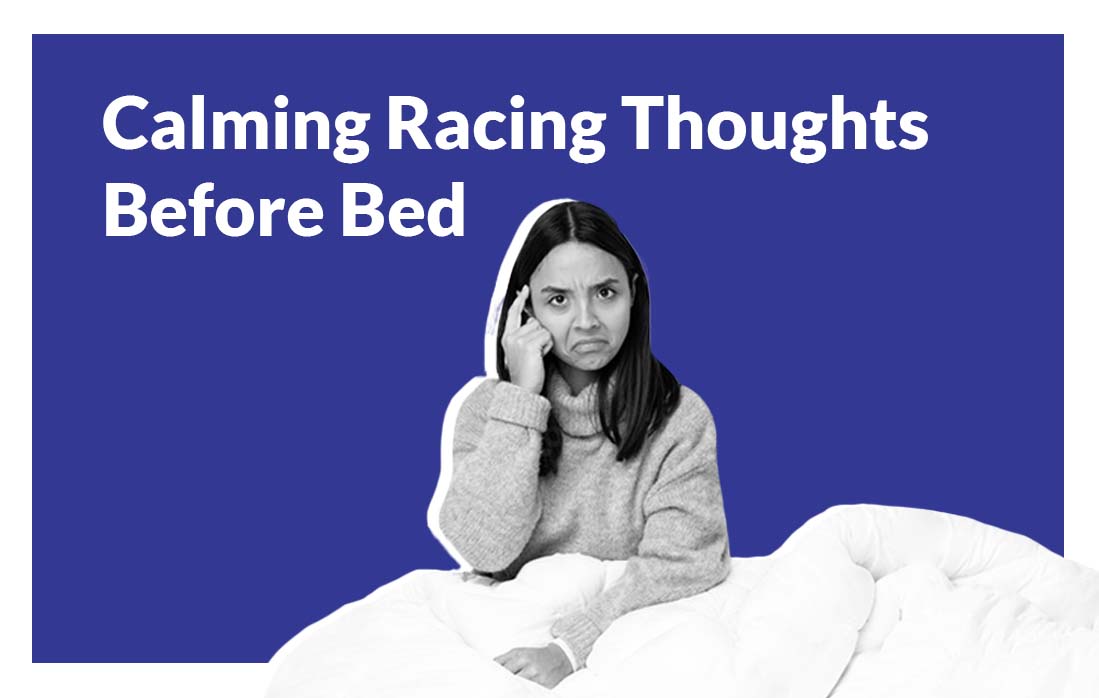
How to Calm Your Racing Thoughts Before Bed
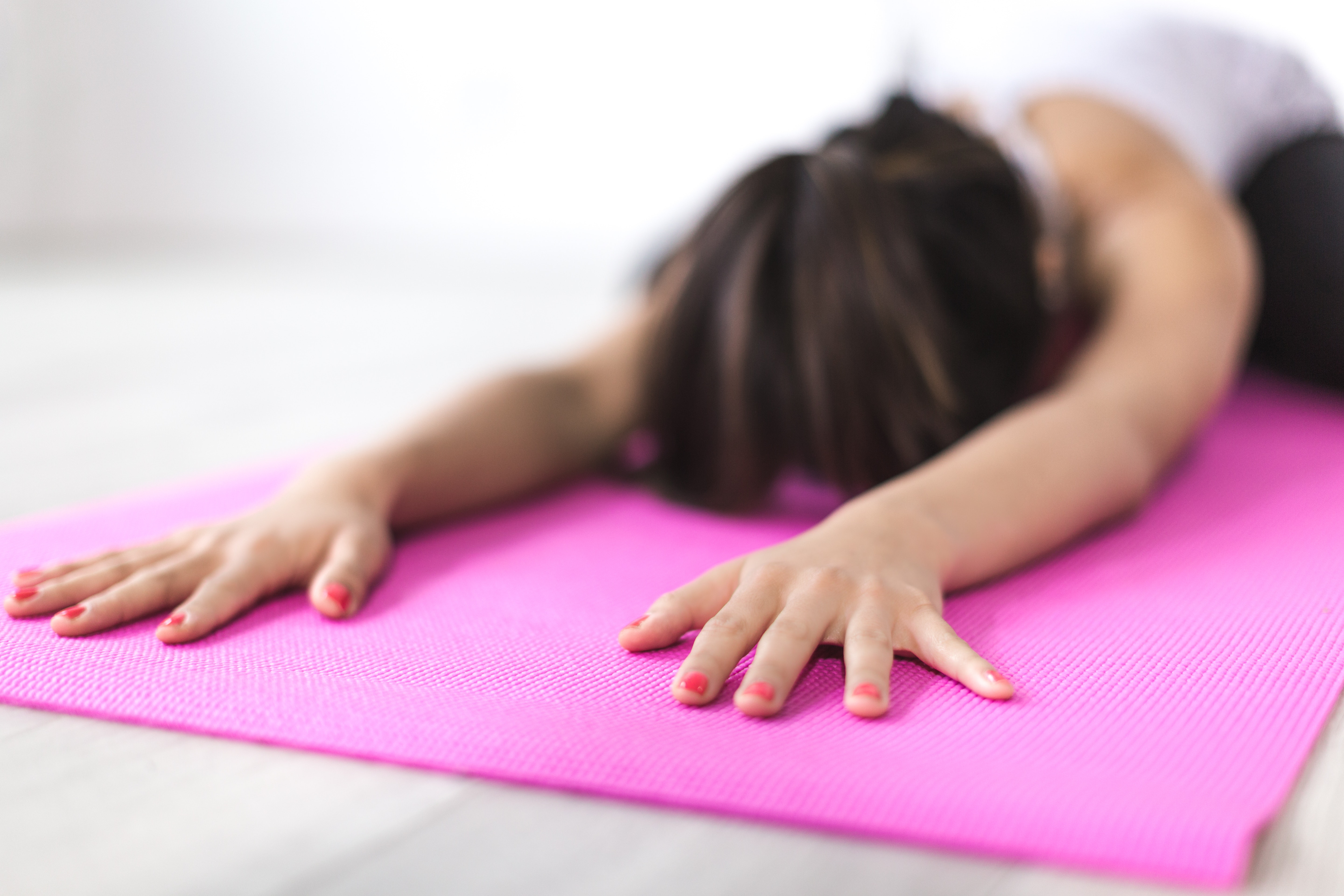
Study Shows Sleep and Yoga Intervention Improves Sleep for Low-Income Individuals
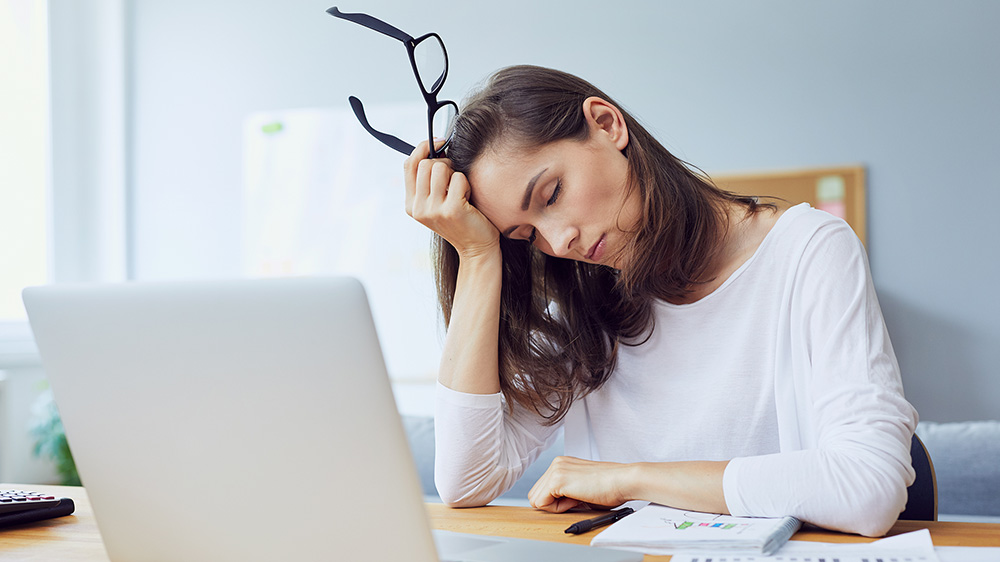
Americans, Especially Women Under 50, Experiencing Record Rates of Sleep Loss and Stress: New Poll
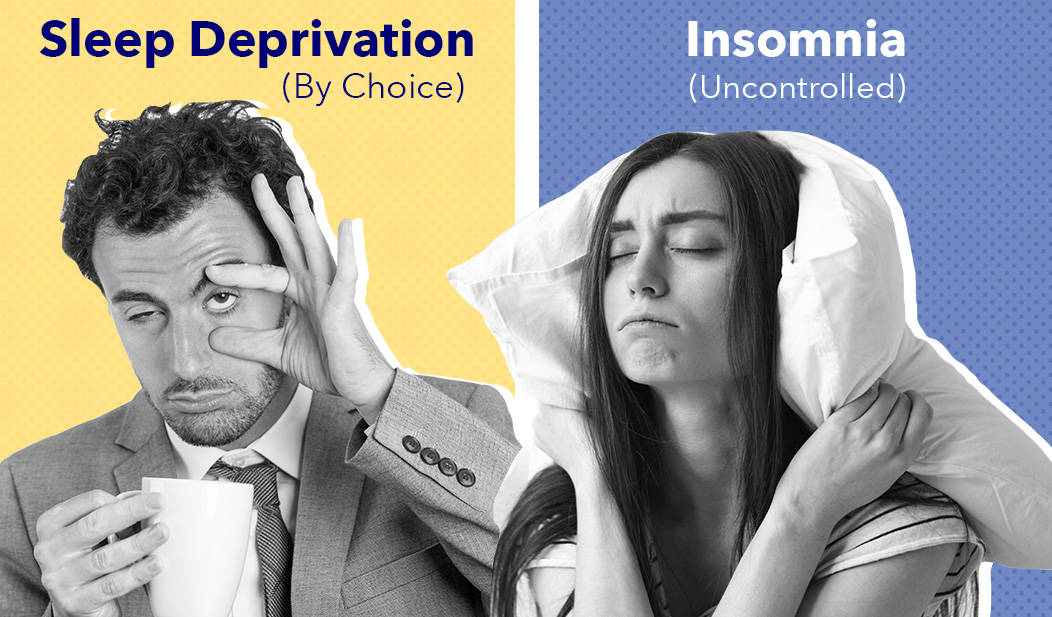
Insomnia: Symptoms, Causes, and Treatments
Sources
1. Mathew, Deepak; “Effect of Yoga Therapy on Insomnia Severity and
Systolic Blood Pressure in Aged Women: A 12- Week Intervention Study Conducted in Kerala,” Cureus; https://assets.cureus.com/uploads/original_article/pdf/239556/20240329-2611-1dphict.pdf; March 29, 2024.2. Verma, Kanika; Singh, Deepeshwar; Srivastava, Alok1. Comparative impact of yoga and ayurveda practice in insomnia: A randomized controlled trial. Journal of Education and Health Promotion 12(1):160, May 2023. | DOI: 10.4103/jehp.jehp_1489_22
3. Helsestart; “Global Insomnia Statistics in 2022 & 2024,” https://www.helsestart.no/news/global-insomnia-statistics
4. Gordon, N.P., Yao, J.H., Brickner, L.A. et al. Prevalence of sleep-related problems and risks in a community-dwelling older adult population: a cross-sectional survey-based study. BMC Public Health 22, 2045 (2022). https://doi.org/10.1186/s12889-022-14443-8
